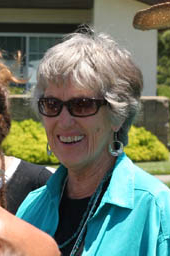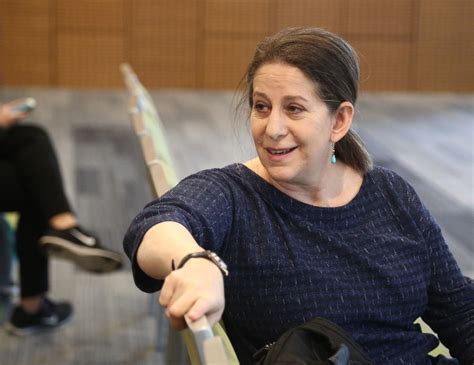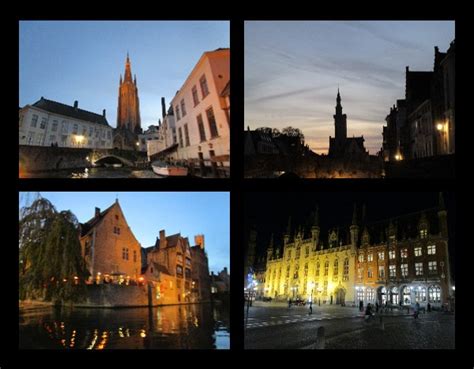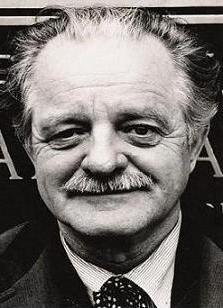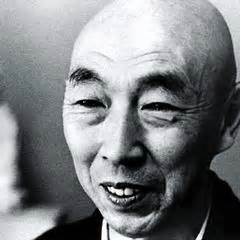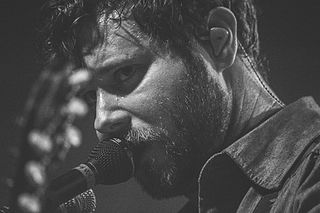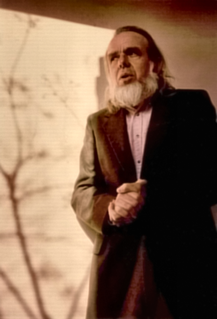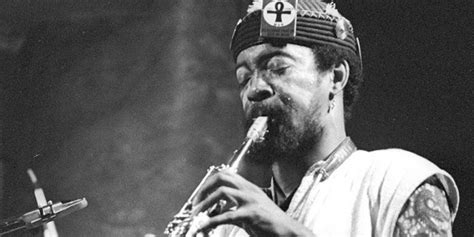Top 1130 Zen Buddhist Quotes & Sayings - Page 17
Explore popular Zen Buddhist quotes.
Last updated on April 22, 2025.
There are many graphic artists who have interpreted The Ancient One as a Tibetan Buddhist Lama, we're kind of shifting that a bit. We're trying not to be fixed, we're trying not to be fixed to any one thing, any one gender, any one spiritual discipline, and any one race even; we're just trying to wing it beyond that. So it's a new gesture really, just another interpretation.
In the early Buddhist view, then, a persons identity resides not in an enduring self but in his actions (karma)- that is in the choices that shape these actions. Because the dispositions formed by previous choices can be modified in turn by present behaviour, this identity as choice-maker is fluid, its experience alterable. While it is affected by the past, it can also break free of the past.
Essentially Satori is a sudden experience, and it is often described as a "turning over" of the mind, just as a pair of scales will suddenly turn over when a sufficient amount of material has been poured into one pan to overbalance the weight in the other. Hence it is an experience which generally occurs after a long and concentrated effort to discover the meaning of Zen.
One view of photography is that it is a zen-like act which captures reality with its pants down - so that the vital click shows the anatomy bare. In this, the photographer is invisible but essential. A computer releasing the shutter would always miss the special moment that the human sensibility can register. For this work, the photographer's instinct is his aid, his personality a hindrance.
I tried Zen and Ching, numerology, tarot cards and astrology. I tried to look back into the Bible, and could not find anything. At this time I did not know anything about Islam, and then, what I regarded as a miracle occurred. My brother had visited the mosque in Jerusalem, and was greatly impressed that while on the one hand it throbbed with life.
The identity of just one thing, the "clash of civilization" view that you're a Muslim or a Hindu or a Buddhist or a Christian, I think that's such a limited way of seeing humanity, and schools have the opportunity to bring out the fact that we have hundreds of identities. We have our national identity. We have our cultural identity, linguistic identity, religious identity. Yes, cultural identity, professional identity, all kinds of ways.
Gonpo Tso was born a princess. As a young woman, she dressed in fur-trimmed robes with fat ropes of coral beads strung around her neck. She lived in an adobe castle on the edge of the Tibetan plateau with a reception room large enough to accommodate the thousand Buddhist monks who once paid tribute to her father.
In the potential of absurdity, hiding in the disparate combination of the various different subjects which in themselves are nothing but daily items equally in the exclusive representation of a normal item taken out of their usual context, is by far the most radical - in its effect comparable to a Japanese Zen koan - paradox to be witnessed, which modern art has produced, one of the most forceful impulses that generated from it.
......the interesting thing was that the Roman Catholic monks and the Buddhist monks had no trouble understanding each other. Each of them was seeking the same experience and knew that the experience was incommunicable. The communication is only an effort to bring the hearer to the edge of the abyss; it is a signpost, not the thing itself. But the secular clergy reads the communication and gets stuck with the letter, and that's where you have the conflict.
Basically, the Buddhist attitude is that you should not accept certain things through sheer faith. And for that you need a skeptical attitude. Buddha himself made this clear to his followers. He said you should not accept those things I taught out of respect for me, but rather through investigation by yourself.
I think I can pinpoint the moment when my first band recorded, when I was 14 and 15 years old. I always enjoyed writing songs and playing, but there was something about going in and capturing it that felt very Zen and perfect for me. A light switch went on and I just realized that's where my musical capacity was the most suited. I just followed on blind faith that that was like a calling for me.
Within the framework of the Buddhist Path, reflecting on suffering has tremendous importance because -realizing the nature of suffering, you will develop greater resolve to put an end to the causes of suffering and the unwholesome deeds which lead to suffering. And it will increase your enthusiasm for engaging in the wholesome actions and deeds which lead to happiness and joy.
The concept of minimalism is to relax. Like a Zen monk in training, it is something that brings equilibrium to the heart. I don't necessarily think it has any problems, but if I were to force myself to name one, I would say that since the minimalist feeling already includes its own universe, I think it might kill the drive that we would otherwise have to commit the physically impossible and attempt to travel into outer space.
It’s interesting to look at your children as line-in Zen masters who can put their finger on places where you’re resistant, or thinking narrowly, in ways noone else can. You can either lose your mind and your authenticity in the process of reacting to all that stuff, or you can use it as the perfect opportunity to grow and nourish your children by attending to what is deepest and best in them and in yourself.
I live for the moment. I'm basically a Buddhist-type person. I'm just here right now, and I don't think about what's going to happen a hundred years from now. I try to concentrate on what's going on right now. But I'm really trying to run this company like it is going to be here a hundred years from now. That's what's important.
As far as vocal preparation goes, it's really an interesting thing for such a fragile instrument and using it properly is like walking a tightrope. I have learned not to do extensive warm-ups. It's really more of a cerebral mind-body connection Zen hippy thing, just knowing your body and figuring out if I do that then I will be able to speak tomorrow.
God is not a Christian, God is not a Jew, or a Muslim, or a Hindu, or a Buddhist. All of those are human systems which human beings have created to try to help us walk into the mystery of God. I honor my tradition, I walk through my tradition, but I don't think my tradition defines God, I think it only points me to God.
Ignorance, vulnerability, fear, anger, and desire are expressions of the infinite potential of your buddha nature. There's nothing inherently wrong or right with making such choices. The fruit of Buddhist practice is simply the recognition that these and other mental afflictions are nothing more or less than choices available to us because our real nature is infinite in scope.
I have learned so much from God that I can no longer call myself a Christian, a Hindu, a Muslim, a Buddhist, a Jew. The Truth has shared so much of Itself with me that I can no longer call myself a man, a woman, an angel, or even a pure Soul. Love has befriended me so completely it has turned to ash and freed me of every concept and image my mind has ever known.
Buddhist nirvana ... is based on egolessness and is not anthropocentric but rather cosmological. In Buddhism, humans and the things of the universe are equally subject to change, equally subject to transitoriness or transmigration. A person cannot achieve emancipation from the cycle of birth and death until he or she can eliminate a more universal problem: the transience common to all things in the universe.
Regardless of what you want to call it, guys need some type of spirituality they can grab onto. If it's Christianity, which is a very structured approach, or if it's something that's a little more open-ended... like, Zen's something you can make yourself a part of. You can interpret it for yourself, like Taoism and stuff like that.
If Zen is approached with the usual mental attitude, it will seem quite incomprehensible. Our average Western intellectuality would consider its paradoxical language simply as a play upon words. Its full significance is revealed only when we approach it in a different manner, making our minds available to the new processes of inner perception which it suggests.
I can pinpoint the moment when my first band recorded, when I was 14 and 15 years old. I always enjoyed writing songs and playing, but there was something about going in and capturing it that felt very Zen and perfect for me. A light switch went on and I just realized that's where my musical capacity was the most suited. I just followed on blind faith that that was like a calling for me.
One can be a faithful disciple of Jesus Christ without denying the flickers of the sacred in followers of Yahweh, or Kali, or Krishna. A globalization of evangelism 'in connection' with others, and a globally 'in-formed' gospel, is capable of talking across the fence with Hindu, Buddhist, Sikh, Muslim - people from other so called 'new' religious traditions ('new' only to us) - without assumption of superiority and power
Do not do that again," he said stiffly. "Don't kiss me back then," I retorted. He stared at me for what seemed like forever. "I don't give 'Zen lessons' to hear myself talk. I don't give them because you're another student. I'm doing this to teach you control." "You're doing a great job," I said bitterly.
Mythology is not a lie, mythology is poetry, it is metaphorical. It has been well said that mythology is the penultimate truth--penultimate because the ultimate cannot be put into words. It is beyond words. Beyond images, beyond that bounding rim of the Buddhist Wheel of Becoming. Mythology pitches the mind beyond that rim, to what can be known but not told.
What is dangerous about the far right is not that it takes religion seriously - most of us do - but rather that it condemns all other spiritual choices - the Buddhist, the Jew, the Muslim, and many others who consider themselves to be good Christians. The wall of separation between church and state is needed precisely because religion, like art, is too important a part of the human experience to be choked by the hands of censors.
When you climb a ladder and arrive on the sixth step and you think that is the highest, then you cannot come to the seventh. So the technique is to abandon the sixth in order for the seventh step to be possible. And this is our practice, to release our views. The practice of nonattachment to views is at the heart of the Buddhist practice of meditation.
On the philosophical level, both Buddhism and modern science share a deep suspicion of any notion of absolutes, whether conceptualize as a transcendent being, as an eternal, unchanging principle such as soul, or as a fundamental substratum of reality. ... In the Buddhist investigation of reality, at least in principle, empirical evidence should triumph over scriptural authority, no matter how deeply venerated a scripture may be.
All the time. A few months ago I came really close to losing it, I was getting really paranoid. And then I started a new job, things fixed themselves. I can't turn my back on the situation and ignore it. If tomorrow I say: "Okay, I've had enough, we're stopping everything" it won't change anything. Might as well try to accept it and stay zen as I have no control over it.
Dreams are a reservoir of knowledge and experience yet they are often overlooked as a vehicle for exploring reality. In the dream state our bodies are at rest, yet we see and hear, move about and are even able to learn. When we make good use of the dream state it is almost as if our lives were doubled: instead of a hundred years we live to be two hundred -- Tibetan Buddhist Tarthang Tulku from
Then another thing, now this is mainly for our interest about Tibet, our struggle. Whole struggle depend on within person. For dangerous. Foolish! Not for this only institution or even not only for Buddhist dogma, but before national sort of right, our right. So therefore this struggle must carried by people themselves.
You know the Zen question, 'The Bodhisattva of Great Mercy' has a thousand hands and a thousand eyes; 'which is the true eye?' I could not understand this for a long time. But the other day, when I looked at the pine trees bending before the cold blasts from the mountain, I suddenly realized the meaning. You see, all the boughs, branches, twigs, and leaves simultaneously bend to the wind with tremendous vigor.
Someone once inquired of a Far Eastern Zen master, who had a great serenity and peace about him no matter what pressures he faced, "How do you maintain that serenity and peace?" He replied, "I never leave my place of meditation." He meditated early in the morning and for the rest of the day, he carried the peace of those moments with him in his mind and heart.
That is a goal, to step out on stage and to actually be present. Honestly alive and present. Although, it doesn't always happen. We're fallible, we're imperfect. That's what a lot of books are written about; that's what a lot of religions have sought after is that kind of zen mentality of just being totally neutral and open and vulnerable to all of the forces in the universe without being attached to them.
Both my parents were agnostic. My mother was kind of a Buddhist. She had some spiritual tendencies, but they were kind of flaky - New Agey, you know? Which is partly why I'm suspicious of that sort of thing. I'm skeptical of any spiritual practice that doesn't involve other people and doesn't involve some sort of consistent tradition.
But the transformation of consciousness undertaken in Taoism and Zen is more like the correction of faulty perception or the curing of a disease. It is not an acquisitive process of learning more and more facts or greater and greater skills, but rather an unlearning of wrong habits and opinions. As Lao-tzu said, "The scholar gains every day, but the Taoist loses every day.
I think a lot of people trying to follow Buddhism these days are getting confused about sex and they don't understand what's going on. They've been exposed to a contemporary Christian idea that sex itself is evil and bad, which I'm not so sure was Jesus' idea. For me, the Buddhist approach isn't that sex itself is evil or bad but that sex is neutral. It's the way you do it that can problematic.
We took a bus to the nearby monastery of one of the last great Tang dynasty Chan masters, Yun-men. Yun-men was known for his pithy 'one word' Zen. When asked 'What is the highest teaching of the Buddha?' he replied: 'An appropriate statement.' On another occasion, he answered: 'Cake.' I admired his directness.
Jesus represents a point of common ground an esteemed rabbi to the Jew, a god to the Hindu, an enlightened one to the Buddhist, a great prophet to the Muslim. Even to the New Age guru, Jesus is the pinnacle of God-consciousness. At the same time, Jesus is the divider. None but Christians see Him as a member of the Godhead on an exclusive mission to repair the broken world.
Crucial to how we feel is being aware of how we are feeling in the moment. The sine qua non of that is to realize that you are being emotional in the first place. The earlier you recognize an emotion, the more choice you will have in dealing with it. In Buddhist terms, it's recognizing the spark before the flame. In Western terms, it's trying to increase the gap between impulse and saying or doing something you might regret later.
A friend of mine told me a bunch of stuff on Buddhism and about Avicii being the lowest level of Buddhist hell, and it just sort of got stuck in my head. Later on when I went to setup a MySpace, I tried a bunch of names and they were all taken so I just kind of ended up with Avicii and then I got really attached to it.
If your creativity comes out of your silence, out of your Zen, out of your meditations, then it is authentic, original. If it comes only as an occupation because you are feeling lost and there is nothing to do - a long holiday, so you start doing something... That is not coming out of your silences, it is coming out of your crazy mind.
It took me a long time to reach the decision to retire, actually, from the Art Ensemble. But it seemed more important to me to share the vitality of Aikido and the vitality of Zen training with people, even though it would be a smaller number of people, it seemed to give them something that could last and improve their lives.
Fans of different races, castes, ethnicities and religions who together celebrate their diversity by uniting for a common national cause. They are my foundation, they are my family. I will play my cricket for them. Their spirit is the true spirit of cricket. With me are all my people. I am Tamil, Sinhalese, Muslim and Burgher. I am a Buddhist, a Hindu, a follower of Islam and Christianity. I am today, and always, proudly Sri Lankan
The future is just your hope, expectation. And when this life is not fulfilling you start looking further, beyond death. All these are fictions just for you to survive somehow. But this survival is not how you are supposed to be. Existence has not given you birth just to live in hopes. You can be really ecstatic this moment, and there is no other moment. Meditation is, Zen is living now and here.
I never really wanted to have a Guru, I was more interested in Buddhist philosophy and meditation, and had a psychological background in college, but he had so much love. To be with him, there was nowhere else to be and nothing else to do. Nothing he taught, philosophy or meditation, are the things I went to India to look for, or was interested in, but he sort of jumped into my heart and then pulled, he pried it open.
If there's one thing I've learned in the last 18+ years of interacting with over 60,000 people during my vegan lecture tour, it's that everyone is the same, whether they are Christian, Jewish, Muslim, Buddhist, Hindu, atheist, Republican, Democrat, independent, socialist, fascist, black, white, Asian, Latino, Native, pro-life, pro-choice, pro-gun or anti-gun.
Imagine a multidimensiona l spider's web in the early morning covered with dew drops. And every dew drop contains the reflection of all the other dew drops. And, in each reflected dew drop, the reflections of all the other dew drops in that reflection. And so ad infinitum. That is the Buddhist conception of the universe in an image.

